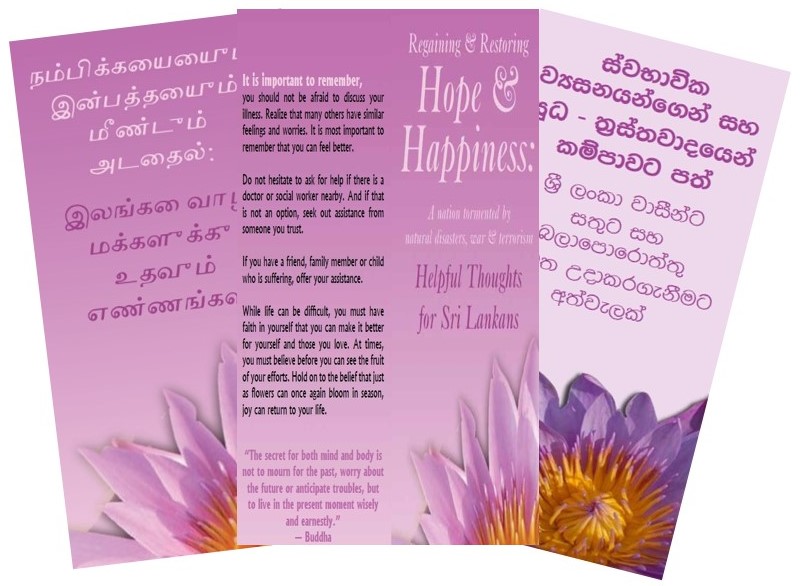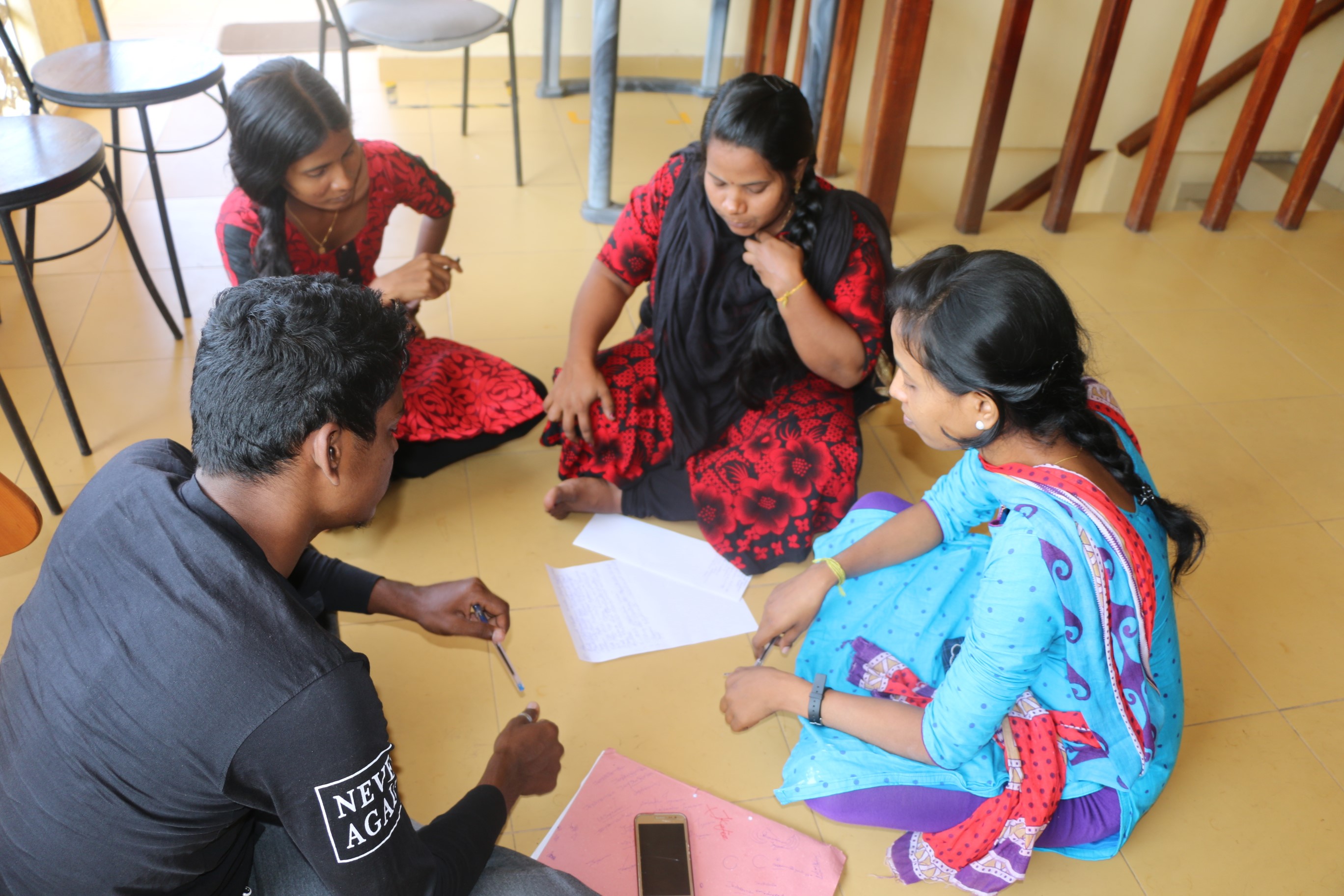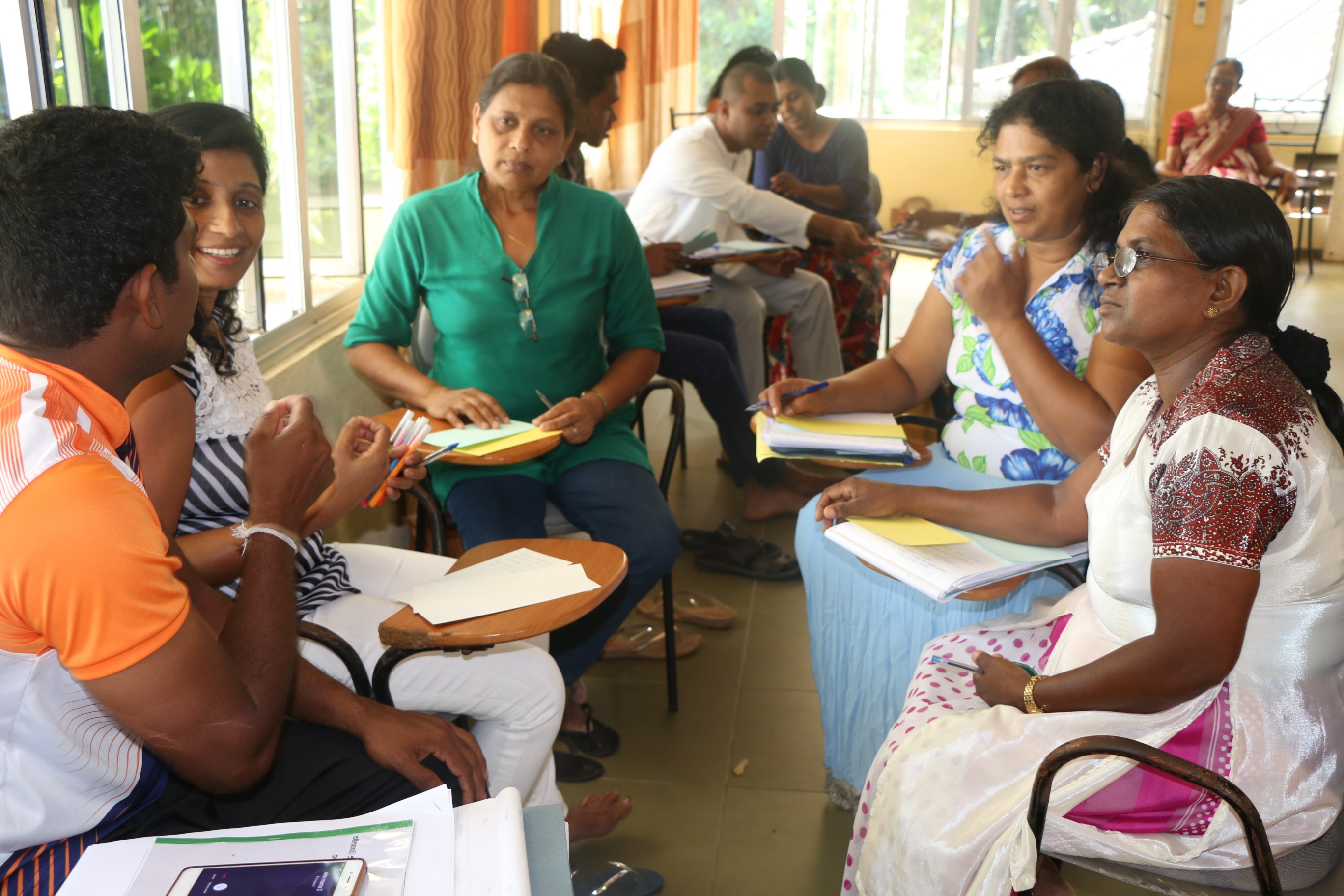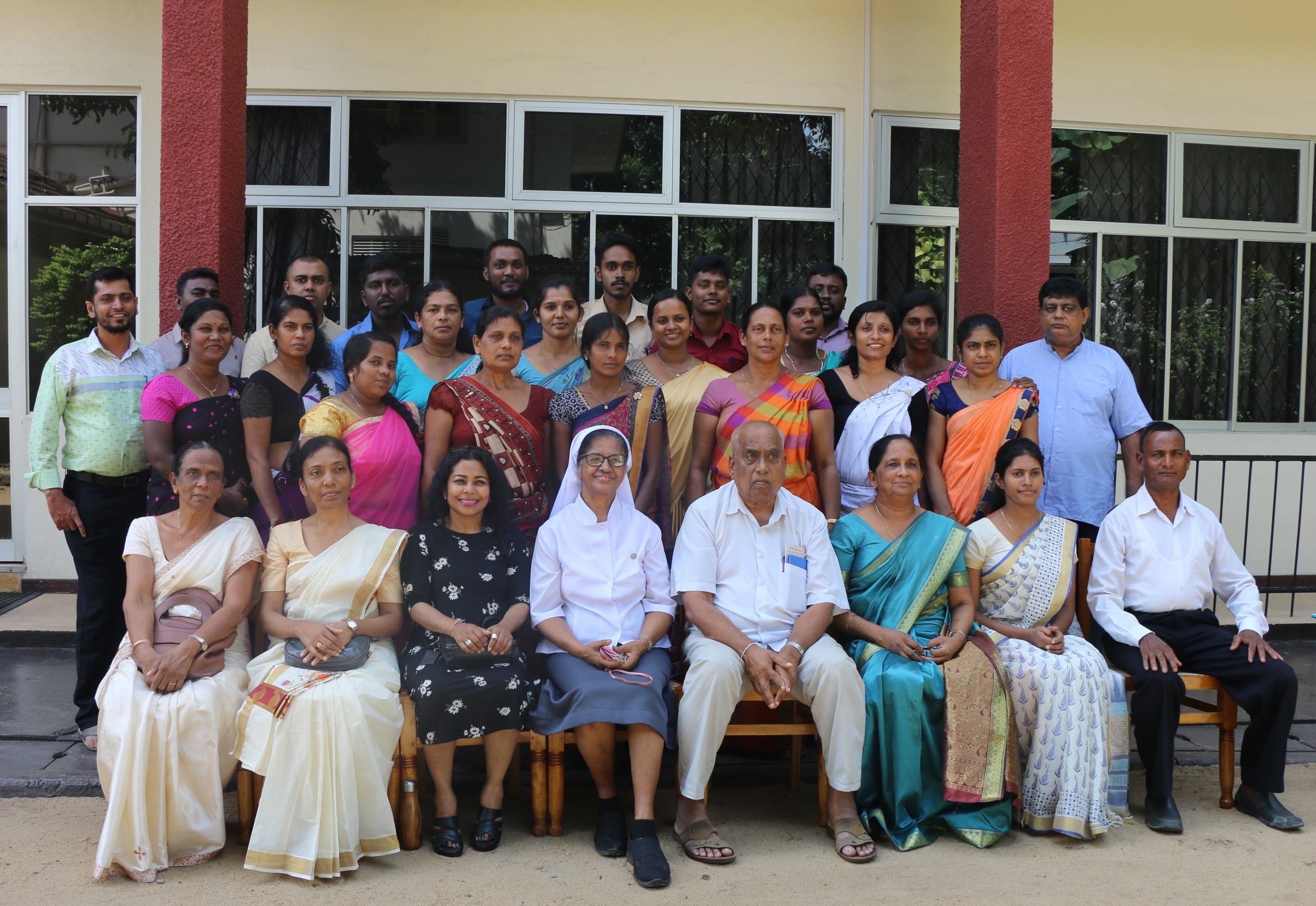Sri Lanka Mental Health Relief Project
 Sri Lanka Mental Health Relief Project
Sri Lanka Mental Health Relief Project
In 2004, the NJMHI Board created the Tsunami Mental Health Relief Project and the Tsunami Mental Health Relief Fund to support it. Working in conjunction with the Neurosurgery Development Foundation, a local, non-governmental Sri Lankan charitable organization, a NJMHI team, including an expert trainer with extensive experience in trauma treatment and a cultural ambassador, traveled to Sri Lanka following the 2004 tsunami that devastated Sri Lankans. They trained more than 100 local counselors, members of the medical community, teachers, corporate human resource specialists, religious and local community leaders and volunteers in recognizing the symptoms of post-traumatic stress disorder, anxiety, depression, other mental illnesses and substance use disorders and, when appropriate, referring people to treatment directly.
The Tsunami Mental Health Relief Project was launched shortly after the tsunami claimed the lives of more than 225,000 children and adults in Sri Lanka and 13 other countries in Southeast Asia in December 2004 by NJMHI Executive Director Debra L. Wentz, PhD. She was in Sri Lanka at the time and avoided being swept away by that torrential wave by an unexpected delay in her travel plans on the island that day.
Dr. Wentz immediately went to work trying to provide whatever help she could to relieve workers and impart her knowledge of mental health issues to citizens of Sri Lanka through communication with the Prime Minister’s office and a television interview on the official station in Sri Lanka. Working with her contacts in the United States, she provided extensive lists of the exact medications and supplies needed to the members of the New Jersey Association of Mental Health and Addiction Agencies’ (NJMHI’s parent company) Pharmaceutical Advisory Council (now the Life Sciences and Innovation Council) and began to lay the groundwork for a long-term mental health response.
Upon returning home in early January 2005, Dr. Wentz made it her personal mission to ensure that the people of Sri Lanka received the long-term help they needed for mental health issues that would develop in the years to come.
Dr. Wentz collaborated with the NJMHI Board to create the Tsunami Mental Health Relief Project and the Tsunami Mental Health Relief Fund to support it. Working in conjunction with the Neurosurgery Development Foundation, a local, non-governmental Sri Lankan charitable organization, a NJMHI team, including an expert trainer with extensive experience in trauma treatment following disasters and a cultural ambassador, traveled to Sri Lanka for two weeks to provide trilingual training to more than 100 local counselors, members of the medical community, teachers, corporate human resource specialists, religious and local community leaders and volunteers in recognizing the symptoms of post-traumatic stress disorder, anxiety, depression, other mental illnesses and substance use disorders and, when appropriate, referring people to treatment directly.
The customized training program, which was designed specifically to reflect the cultural, linguistic and belief systems in Sri Lanka, and was delivered trilingually (in English, Sinhala and Tamil), provided critical assistance when it was most needed – immediately – and also set the stage for the future.
Once trained, some of the individuals, including those with a strong medical background, were able to train others. The program was designed to help those who survived the devastation of the tsunami to obtain the help they needed to appropriately manage the psychological effects that this tragedy was expected to have on the entire population.



In 2012, NJMHI transitioned the Tsunami Mental Health Relief Project into the Sri Lanka Mental Health Relief Project to educate the people of Sri Lanka about the signs and symptoms of mental illness and substance use disorders and how to obtain help. As civil strife in Sri Lanka prevented NJMHI from sending individuals to provide more training for several years, culturally sensitive, trilingual brochures were developed and distributed in Sri Lanka.
In 2018, NJMHI selected the Sri Lanka Center for Development Facilitation (SLCDF) (a non-governmental Sri Lankan non-profit organization) and its proposal, Program for Community Leaders to Enhance their Capacity as Facilitators on Basic Mental Health Needs/Requirements, for the third phase of the Sri Lanka Mental Health Relief Project. As Sri Lanka has the fourth highest suicide rate in the world, according to 2015 World Health Organization statistics, counseling and tools to build resilience and life skills are paramount. Besides lifestyle changes initiated by rapid urbanization, a technology boom and mass media influences, the lingering psychological impact of the 2004 tsunami, decades of civil war, extreme poverty and social upheaval have resulted in a proliferation of the number of children and adults with depression, post-traumatic stress, substance use disorders and other issues. As Sri Lanka has a dearth of professionals to address these challenging problems, even in the main cities, the project is focused on providing training in basic counseling skills for community leaders in remote parts of the country.
The curriculum for these training modules was developed by Sister Janet Nethisinghe, President of the Sri Lanka EMDR [Eye Movement Desensitization and Reprocessing] Association, in conjunction with a group of professionals in the field assembled by the SLCDF. Objectives of the course were to educate participants about the different human issues faced by the community in Sri Lanka; enhance participants’ knowledge of different social and health issues and mental illnesses in Sri Lanka; provide an introduction to counseling; build attendees’ awareness of the process of community counseling; develop a positive self-concept and healthy peer relationships among participants; and augment attendees’ knowledge, attitudes and skills about the roles and responsibilities of community counselors.
Multi-day training sessions were held in November 2018 and January 2019. The third session was scheduled to take place in April 2019, but was postponed until the end of June 2019 due to the unstable situation resulting from the Easter Day bombings, which killed nearly 300 children and adults, and the continuing religious and political unrest.
Topics included drug and alcohol addiction, social problems, mind mapping, self-awareness,
listening practice, understanding and prevention of suicide, and parenting and understanding of children.
This phase of the project began with 40 participants. However, due to the fear of traveling resulting from the bombings, 25 individuals from 10 districts in Sri Lanka completed the three multi-day training sessions. The participants have strengthened their mutual understanding and interconnections among themselves. In addition, a network of facilitators to address communities’ mental health needs was created in these 10 districts, and implementation plans were developed. A facilitation desk was created to coordinate provision of counseling and other support as needed in the district consortia and several other places that have many individuals with mental health challenges.
According to the SLCDF, 50 families (250 individuals) will directly benefit from this phase of the project and 1,500 families (7,500 individuals) will benefit indirectly.
